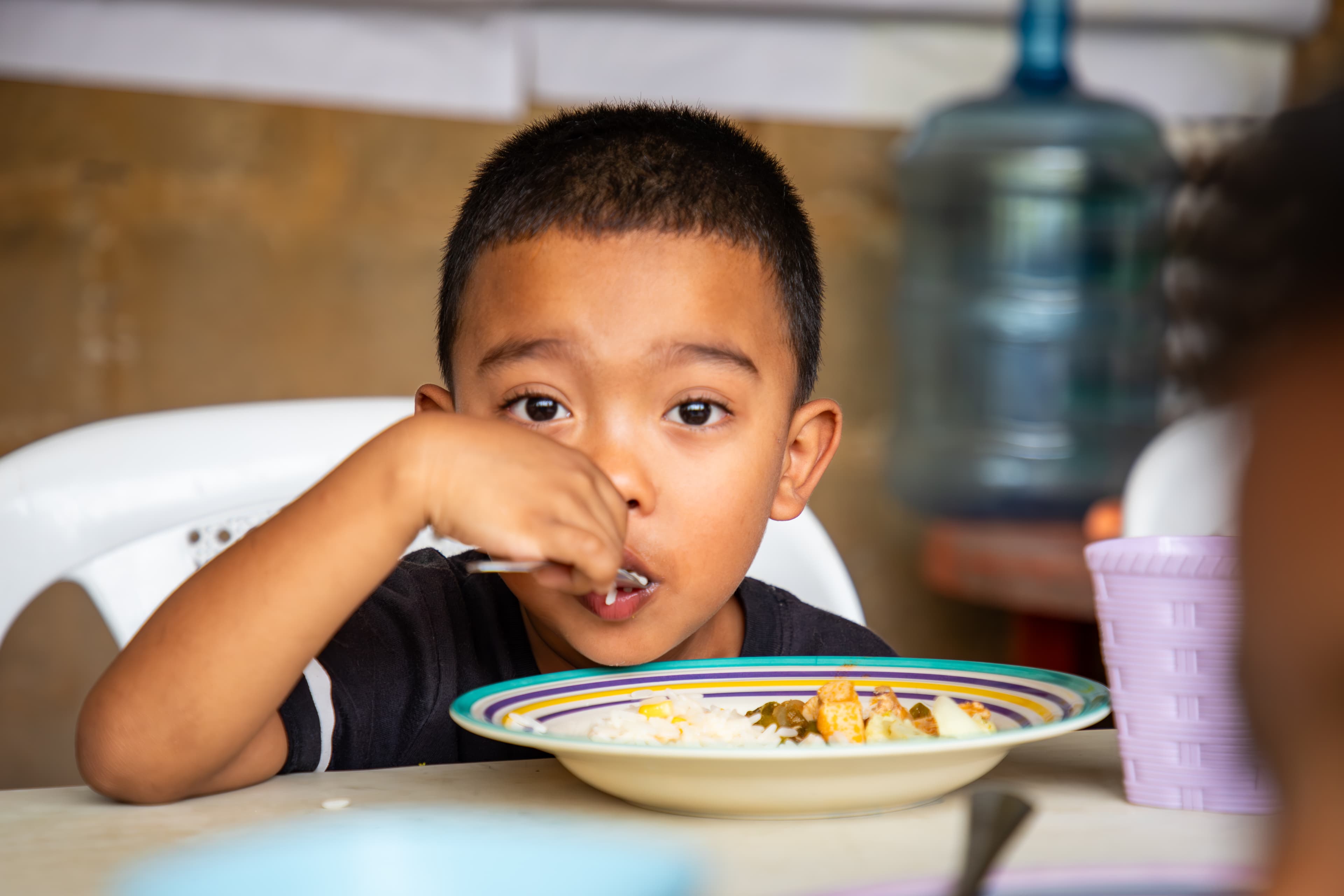World hunger refers to the widespread lack of nutritious food that has devastating impacts on children and families around the globe.
Millions of people face severe hunger daily, especially in places like Africa.
Compassion fights world hunger by providing nutrition support to children living in poverty.
What Is World Hunger?
First, what is hunger? Hunger is a physical sensation our bodies experience that signals a lack of nutrients and a need for nourishment. While we all experience the feeling of being “hungry,” hunger can be chronic too.
When food security (dependable and consistent access to healthy food) is disrupted, hunger becomes constant. And this is a reality for millions of people around the globe. World hunger refers to this widespread lack of nutritious food that has devastating impacts on those who suffer.
World Hunger Facts
According to the World Health Organization (WHO), over 730 million people faced hunger in 2023, equivalent to one in 11 people globally. Here are some other facts about world hunger you should know:
Around 2.33 billion people globally experienced moderate or severe food insecurity in 2023.
Africa is one of the continents most impacted, with 20.4% of the population facing hunger.
According to UNICEF, tens of millions of children under 5 suffer from acute malnutrition, a serious condition that can lead to stunted growth, increased illness and even death.
Understanding the Current Global Food Crisis
Currently, the world is experiencing the worst global food crisis since World War II. Many situations have combined to create this crisis over the past several years, from the COVID-19 pandemic and the war in Ukraine to natural disasters like severe droughts.
According to the World Food Programme, concerning levels of hunger are expected to continue throughout 2025.
What Causes World Hunger?
There are many causes of world hunger. For example, conflict like wars can disrupt food systems and displace families from their homes, restricting their access to food.
Natural disasters also contribute to hunger. Earthquakes, hurricanes and other events can destroy crops and infrastructure, eliminating food sources altogether.
One of the main causes of hunger is poverty. Families living in poverty lack the financial resources needed to buy nutritious food. In fact, millions of families living in extreme poverty must survive on less than $3.00 per day, far from enough to buy nutritious meals.
How Does World Hunger Impact Children?
While poverty impacts millions around the world, children are often the most vulnerable. Hunger has significant effects on a child’s health and well-being. For example, according to recent data, around 8 million children under the age of 5 are at risk of death due to wasting or child starvation. In addition, without good nutrition, a child’s immune system is weakened, putting them in danger of serious diseases. Other effects of hunger on children include:
Greater susceptibility to infection.
Diabetes and other chronic diseases like cancer.
Impaired speech and cognitive ability.
Damage to the brain and other organs.
How Does Compassion Fight Back Against Hunger?
The impact of hunger on children’s lives isn’t something we can ignore. At Compassion, we partner with local churches in impoverished communities where hunger is prevalent. Through the love and care of supporters around the world, we provide nutrition support and medical care to millions of children living in poverty.
Each of our church partners is trained to see the signs of malnutrition and take action on behalf of the children we serve. This may include:
Delivering emergency access to food for children in need.
Providing vitamin supplements to ensure healthy growth.
Training caregivers on nutrition to ensure they serve meals that meet children’s nutritional needs.
Providing children in our child sponsorship program with regular meals.
Those who give to the poor will lack nothing, but those who close their eyes to them receive many curses. — Proverbs 28:27, NIV
While world hunger may feel like a hopeless situation, we can make a difference if we work together. As the hands and feet of Jesus, we’re called to help the impoverished. You can join Compassion in our fight against hunger by praying for children in need, making a donation or sponsoring a child.


